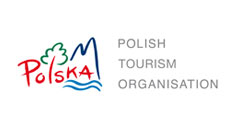POT at IV TIC Expert Meeting in Budapest
IV TIC Expert Meeting, the only European event to deal with tourist information, took place in Budapest on 26-27 October. Poland was represented by Director of the E-Information Department at the Polish Tourism Organisation Magdalena Ragus and a representative of the Gdańsk Tourist Organisation
 This was the fourth meeting of experts on tourist information. The Polish Tourism Organization (Polska Organizacja Turystyczna - POT) participates from the time of the second edition held in Amsterdam in 2015. The organiser of the event is European Cities Marketing.
This was the fourth meeting of experts on tourist information. The Polish Tourism Organization (Polska Organizacja Turystyczna - POT) participates from the time of the second edition held in Amsterdam in 2015. The organiser of the event is European Cities Marketing.
TIC Expert Meeting offers an extraordinary opportunity to conduct discussions, jointly search for solutions to problems pertaining to the functioning of tourist formation and the trends of its development, and learn about interesting examples of solutions applied in different countries. The conference is attended predominantly by employees of tourist information centres (TICs) in Europe.
The number of applications and participants clearly shows that the “TIC” topic is essential. 85 persons from 26 countries attended the meeting. Poland was represented by Director of the E-Information Department at the Polish Tourism Organisation Magdalena Ragus and a representative of the Gdańsk Tourist Organisation (Gdańska Organizacja Turystyczna - GOT).
This year’s meeting was dedicated to the evolution of tourist information centres and their operations, affected by the expansion of digital and online communications. Both the manner of functioning and the ways in which information reaches tourists are evolving. The same is true for the type of transmitted information.
Tourist information cannot serve only a single purpose, namely, on-the-spot transmission of basic information. It must also act as the heart and ambassador of tourist traffic and be wherever people need it, i.e. at the TIC, in mobile centres (in the streets) and, naturally, online. 24-hour availability is just as important. It is equally essential for information to be true and credible; hence the emergence of a trend using the local community for supporting “TIC” undertakings.
Assorted examples from European cities demonstrate a great diversity of approaches to the transformation of “TICs”. Emphasis, however, must be placed on the fact that it is dominated by concentration on electronic media and treating this particular channel as fundamental for reaching the so-called millennial generation.
An interesting example may be Barcelona, which decided to set into motion a live chat outfitted with special translation software making it possible to talk in every possible language and in real time.
The most remarkable campaign was undertaken in Malmo, which decided to hand over all tourist information to the local community. The “TIC” centre was closed, as was the Internet site. A telephone channel remains for the time being, but it too is to be shut down in the nearest future; e-mails will become the sole way of establishing direct contact with tourist information. Tourist information as a whole has thus been based on social media run together with the population of Malmo.
On the other hand, La Valletta, the capital of Malta, which is to become the European Capital of Culture 2018, plans to open successive TICs in view of the anticipated number of tourists in 2018.



